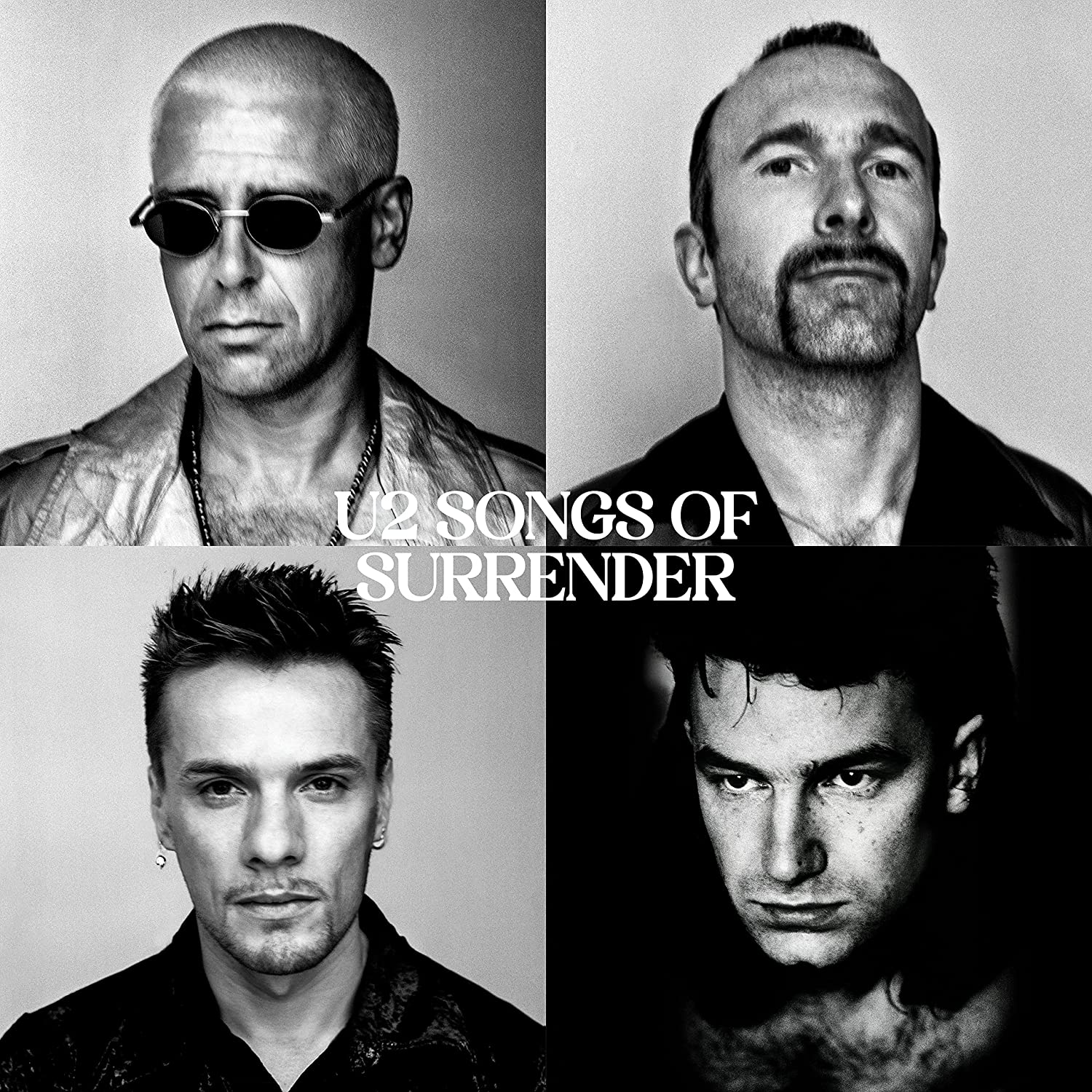U2
Songs of Surrender
ISLAND/INTERSCOPE
To title an album Songs of Surrender might seem as if U2 have given up resignedly, thrown in the towel, until you scratch below its surface to find that the quartet have instead yielded to what 40 of their songs have called for them to do: reconnoiter and reconsider, relinquish themselves and their past music to a new maturity—to fall forward, not backward. Things change. Goals shift. Music should morph with time in what is the ultimate remix.
That’s no mean feat, either. On Songs of Surrender, U2 find themselves looking deep into a closet of classics and deep cuts, figuring out their own personal and musical growth—and admitting to aging, in the case of Bono’s voice and lyrics—and reimaging where this band is centered at present before making new music. In sessions recorded across the last two years, with producers The Edge and Bob Ezrin dryly recreating their landscapes, Songs of Surrender offers genuine surprises as to how the band sees themselves and their material. And while there are tracks where you might not love what they’ve come up with, give them a break. That dog-eared, scratched-up copy of Unforgettable Fire is in your basement somewhere—pull it out if you need to cry on a record sleeve.
The quiet manner in which U2 render these new versions of their past—a sotto voce, piano-focused “One,” rather than its grand-smash iteration, for example—positions them anew, as if they weren’t looking to hit the home runs or make the monster hits (kudos to Paul McCartney’s drummer Abe Laboriel Jr. for the vocal arrangement here). The Edge’s spare piano is more like a lifeline throughout these 40 songs, a skint instrumental sea upon which Bono floats softly on moments such as “Song for Someone.”
These versions are tonic, smaller, dramatic without being overtly epic, as on the new version of “Where the Streets Have No Name.” Here, Bono doesn’t shout to the mountains. He simmers and swerves seductively (maybe something he learned from his hanging with Sinatra) rather than bellows. And he never loses a bit of power or impact. A little bit of Bowie, too, carries a long way on Bono’s croon through the still-life “Stories for Boys.” Either way, Bono has a nice way with an up-close-and-personal vocal as he enters his 60s—more of a hum than a rattle.
The Bond-like “11 O’Clock Tick Tock,” a near-naked (save for that strummy guitar and weird neo-psych vocal flange FX) “Out of Control,” a whispered and squeaky “Stuck in a Moment,” a swishing, chamber orchestra–filled, Who-like “Vertigo,” a gravely slow and low country-ish “I Still Haven’t Found What I’m Looking For,” a Chopstick-y “I Will Follow,” a slight and galloping “The Miracle of Joey Ramone,” a winded and softly percussive “Until the End of the World”—I love the element of surprise.
As for Bono’s lyrical change-ups, let’s pretend it’s baseball and allow the listeners to be caught off guard by his sliders. Like the rest of the album’s arrangements and vocals, they’re often subtle switches in attitude or latitude. But pay attention, lest you miss the thrill of finding oneself. To quote a Songs of Surrender selection, U2 got out of their own way on this one, and made their best new old album in some time.









